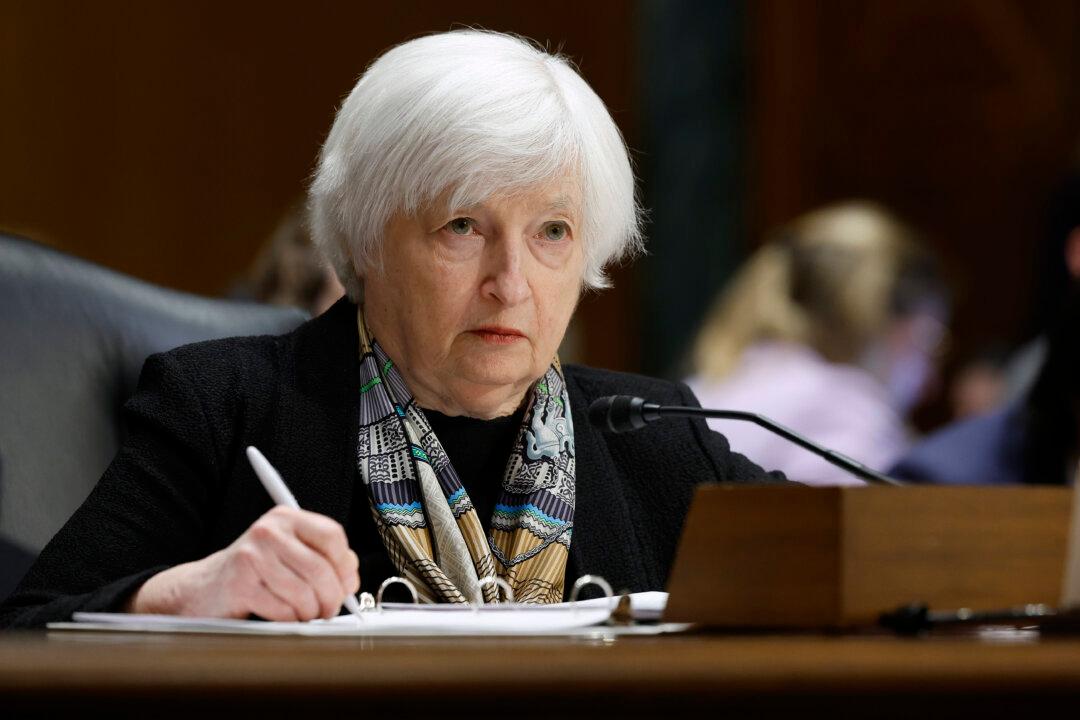Treasury Secretary Janet Yellen on Thursday said banking rules may need to be tightened after the recent failures of Silicon Valley Bank (SVB) and Signature Bank, while warning of structural vulnerabilities that must be addressed in the “shadow bank” sector that includes things like hedge funds and money market funds.
In remarks prepared for delivery to the National Association for Business Economics (NABE), Yellen said that banking regulation and supervisory rules need to be reexamined in the wake of the twin collapses of SVB and Signature, which were sparked by bank runs.





